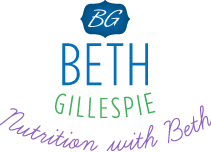Several months ago, while driving to a meeting, I was listening to a NPR radio segment about college students and their off label use of the prescription drug Adderall, also known as Addy. This medication is used to treat Attention Deficit Hyperactivity Disorder (ADHD), on the premise that it may help to increase ability to pay attention, concentrate, and stop fidgeting.
Adderall is a combination of stimulants (amphetamine and dextroamphetamine) and is thought to work by restoring the balance of certain neurotransmitters in the brain. Dosage is based on the recipient’s medical condition and response to treatment.
According to WebMD.com, this medication may cause withdrawal reactions, especially if it has been used regularly for a long time or in high doses. Withdrawal symptoms include severe tiredness, sleep problems, and mental/mood changes such as depression. Adderall, in rare cases, may cause addiction. Symptoms while taking Adderall include loss of appetite, weight loss, dry mouth, stomach upset/pain, nausea, vomiting, dizziness, headache, diarrhea, fever, nervousness, and trouble sleeping. It can also raise your blood pressure. Not a pleasant list of side effects!
Adderall has been adopted as a cognitive enhancer at college campuses. Students who want to perform better, get better grades, and also have a social life during their college years can get Addy from their friends or buy it very easily on college campuses. The New Yorker published an article back in 2009 that reported that anywhere from 4.1 % to 25% of American undergraduates had taken prescription stimulants for off-label use.
And of course, stimulant drugs like Adderall have also made their way into competitive work environments where crazy long hours are encouraged. The pressure to use these off label stimulants is high in certain environments. What does one do to stay competitive without Addy? How do you support your brain without the use of prescription drugs?
I have a complete fascination with the brain and how it works. There are days when my brain feels like it is powering on all cylinders and days when it feels foggy. Since there is so much we can do to support our brain, this will be a two part article!
Before I even start with how to support the brain, it is important to note that the brain requires a HUGE amount of energy (as much as your muscles and much more than your heart). One of the top things you can do to support your brain is to get enough sleep. This may be six to seven hours for some people and eight to nine hours for others. Study after study shows improved memory and focus after a good night’s sleep. Although college students and people at very competitive work environments will argue that they cannot possibly get that much sleep due to their work load, one needs to look at how sleep might reduce the amount of hours needed to complete papers or a big project. If a person makes it a priority to get seven hours of sleep per night, they will most likely be more productive in the fewer hours that they are awake, make better decisions and prioritize more effectively, and make less mistakes. Ariana Huffington wrote about this in her book Thrive and studies have certainly demonstrated that people who work less hours are more productive in the hours that they do work. Having problems sleeping? Think about not drinking caffeine after 2:00 pm!
Stay hydrated with water. Even mild dehydration slows down your body’s metabolism, and this includes your brain! Even though it might be useful once in awhile to separate your brain from the rest of your body, it just isn’t going to happen!
Supply your body with the building blocks it needs to support the brain, such as animo acids from protein, slow release carbs to supply glucose, and good fats like the Omega 3 essential fatty acids to reduce inflammation. What does this look like in your diet? Make an attempt to get some protein in each meal; this will help regulate blood sugar levels so you don’t get that crash and burn feeling two hours after you eat. Make it easy and start your day with a quick protein smoothie (recipe below). Avoid the carbs that raise your blood sugar quickly (like bagels, pastries, and candy) and then cause a subsequent crash in your brain energy. Instead, get your carbs from whole fruits, starchy veggies like sweet potatoes or beets, or a higher protein grain like quinoa. (By the way, quinoa is botanically a seed).
Load up on antioxidant rich foods! Oxidative stress in the brain causes an unstable environment! Who wants that when trying to write a paper or meet a work deadline! In fact, I recently learned that oxidative stress and neuro inflammation = new definition of depression. While studying or working late hours, snack on blueberries, a couple squares of 70% or higher chocolate, or a big handful of almonds, walnuts, or pecans. Or blend up a quick protein smoothie with antioxidant rich berries and greens. Or how about a cup of decaffeinated black or green tea, also loaded with antioxidants? Just be sure not to add sugar!
I learned from Brendon Burchard to get up and move around every 45 to 60 minutes to keep focused and on task. Jump up and down, do a few push ups, whatever works for you. This really does make a difference!
In Part II, I will review specific nutrients that you can take to support your brain that you don’t have to buy on the black market!

Fascinating article halve always been intersected in this and am looking now into how this research will work and grow with our aging piopulation
Would like to to read more
Regards
Sally Catalana
Thank you Sally. Keep watching my blog as I will have some more information in the coming months.